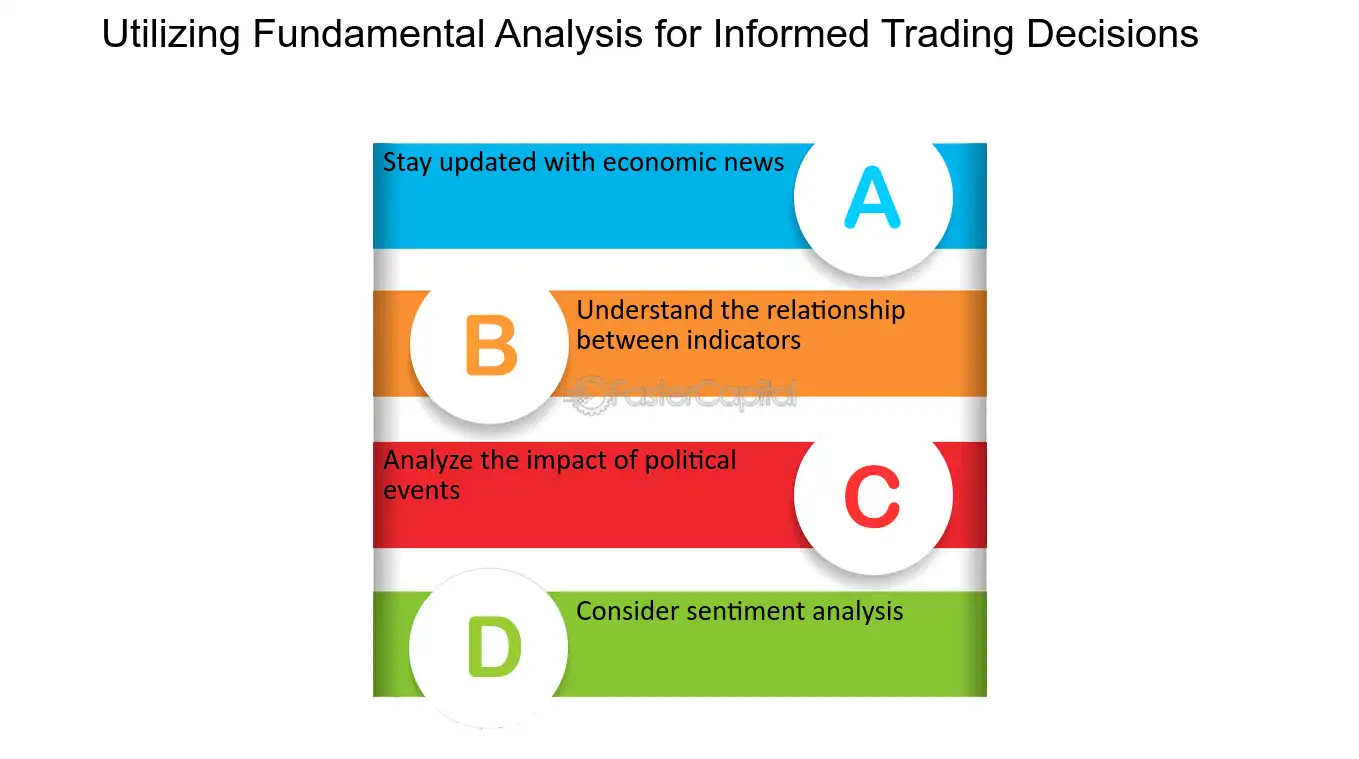Did you know that some traders believe that a good cup of coffee can make or break their trading day? While caffeine might boost your focus, understanding fundamental analysis is essential for making informed trading decisions. In this article, we delve into what fundamental analysis is in day trading, highlighting its significance compared to technical analysis. We’ll explore key metrics, the impact of economic indicators, and the role of earnings reports. Additionally, we’ll discuss how news events and sentiment analysis can shape your strategies, the common pitfalls to avoid, and the tools available for crafting a robust fundamental analysis strategy. With insights from DayTradingBusiness, you’ll be equipped to leverage fundamental analysis for identifying trading opportunities and navigating market trends effectively.
What is Fundamental Analysis in Day Trading?
Fundamental analysis in day trading involves evaluating a stock's intrinsic value by examining economic indicators, financial statements, and news events. Traders look at factors like earnings reports, interest rates, and market trends to make informed decisions. This analysis helps predict short-term price movements, guiding traders in buying or selling stocks quickly based on underlying company performance and market conditions.
How Does Fundamental Analysis Differ from Technical Analysis?
Fundamental analysis focuses on evaluating a company's financial health, including earnings, revenue, and economic indicators, to determine its intrinsic value. In day trading, this involves analyzing news, earnings reports, and market trends to make informed decisions.
Technical analysis, on the other hand, relies on price charts and trading volumes to predict future price movements based on historical data. It emphasizes patterns, trends, and market sentiment rather than the underlying financials of a company.
In summary, fundamental analysis looks at a company's overall financial situation, while technical analysis examines price action and trends for trading decisions.
Why is Fundamental Analysis Important for Day Traders?
Fundamental analysis is crucial for day traders because it helps assess a stock's intrinsic value and identify potential price movements. By analyzing financial statements, earnings reports, and economic indicators, day traders can make informed decisions about short-term trades. Understanding market sentiment and news events allows traders to anticipate volatility and capitalize on quick price changes. This analysis provides context to price action, enhancing risk management and improving overall trading strategy.
What Key Metrics Should Day Traders Analyze?
Day traders should analyze key metrics such as earnings reports, economic indicators, and news events. Focus on metrics like earnings per share (EPS), revenue growth, and price-to-earnings (P/E) ratio. Economic indicators like unemployment rates and GDP growth provide context. News sentiment and market trends also influence stock prices. Understanding these metrics helps traders make informed decisions quickly.
How Can Economic Indicators Impact Day Trading?
Economic indicators impact day trading by influencing market sentiment and asset prices. Traders use fundamental analysis to interpret data like GDP, employment rates, inflation, and consumer confidence. For example, a strong jobs report may boost stocks, prompting traders to buy, while high inflation could lead to selling. Understanding these indicators helps traders make informed decisions, predicting short-term price movements based on economic conditions.
What Role Do Earnings Reports Play in Day Trading?
Earnings reports are crucial in day trading as they provide key insights into a company's financial health and performance. Traders analyze these reports to anticipate stock price movements. Positive earnings can lead to price spikes, while negative results often trigger declines. This volatility presents opportunities for day traders to capitalize on quick price changes. Fundamental analysis in day trading involves evaluating earnings reports alongside other financial metrics to make informed trading decisions. By focusing on earnings, traders can identify potential entry and exit points effectively.
How Do News Events Affect Day Trading Strategies?
News events significantly impact day trading strategies by influencing stock prices and market volatility. Fundamental analysis in day trading involves evaluating economic indicators, earnings reports, and news releases to predict price movements. Traders often react to events like mergers, regulatory changes, or economic data, adjusting their strategies based on the anticipated market response. By monitoring news closely, day traders can identify potential trading opportunities and risks, allowing for informed decisions in real-time.
What are the Best Resources for Fundamental Analysis?

The best resources for fundamental analysis in day trading include:
1. Financial News Websites: Bloomberg, CNBC, and Reuters provide up-to-date information on market trends and economic indicators.
2. Earnings Reports: Access quarterly earnings reports from companies to assess performance and outlook.
3. SEC Filings: Review 10-K and 10-Q filings for detailed company information.
4. Analyst Reports: Use reports from firms like Morningstar and Zacks for expert analysis and stock ratings.
5. Economic Calendars: Websites like Forex Factory or Investing.com list key economic events and data releases.
6. Stock Screeners: Tools like Finviz and Yahoo Finance help filter stocks based on fundamental criteria.
7. Investment Books: Titles like "The Intelligent Investor" by Benjamin Graham offer insights into fundamental principles.
Utilizing these resources will enhance your ability to perform effective fundamental analysis in day trading.
How Often Should Day Traders Conduct Fundamental Analysis?
Day traders should conduct fundamental analysis daily, especially before market open. This helps them assess news, earnings reports, and economic indicators that could impact stock prices. Regularly reviewing this information ensures they make informed trading decisions and stay ahead of market movements.
What Common Mistakes Do Day Traders Make with Fundamental Analysis?
Common mistakes day traders make with fundamental analysis include:
1. Ignoring Economic Indicators: Many traders overlook key reports like GDP, employment figures, and inflation data, which can significantly impact stock prices.
2. Misinterpreting Earnings Reports: Traders often react too quickly to earnings results without considering context, like revenue growth or future guidance.
3. Overemphasizing Short-Term News: Focusing solely on daily news without understanding its long-term implications can lead to poor decisions.
4. Neglecting Sector Trends: Traders might fail to analyze how broader sector performance affects individual stocks, missing potential opportunities.
5. Relying on Incomplete Data: Using insufficient or outdated information can lead to misguided trades.
6. Lack of Risk Management: Not considering how fundamental shifts can affect risk levels can expose traders to unnecessary losses.
Avoid these mistakes to enhance your day trading strategy with fundamental analysis.
Learn about Common Mistakes in Order Flow Analysis for Day Traders
How Can Day Traders Use Fundamental Analysis to Identify Opportunities?

Day traders can use fundamental analysis by focusing on key economic indicators, earnings reports, and news events that impact stock prices. They look for anomalies between a stock's current price and its intrinsic value based on financial metrics like P/E ratios, revenue growth, and profit margins. By analyzing sectors and industries, traders can identify trends and potential breakout stocks. Staying updated on news that affects market sentiment, such as Federal Reserve announcements or geopolitical events, helps traders make informed decisions quickly. This approach allows day traders to capitalize on short-term price movements driven by fundamental shifts.
Learn about How Do Institutional Traders Use Technical and Fundamental Analysis?
What Are the Limitations of Fundamental Analysis in Day Trading?
Fundamental analysis in day trading focuses on a stock's underlying financial health, earnings, and economic indicators. Its limitations include:
1. Time Sensitivity: Fundamental data often lags, making it less relevant for quick trades.
2. Market Sentiment: Day traders react to news and trends, which can overshadow fundamentals.
3. Short-Term Focus: Fundamental analysis typically suits long-term investing; day trading requires immediate insights.
4. Complexity: Interpreting financial statements and economic indicators can be daunting under tight time constraints.
5. Lack of Predictive Power: Fundamentals don't always predict short-term price movements, leading to potential losses.
These factors can hinder effective decision-making in the fast-paced day trading environment.
Learn about How to Conduct Fundamental Analysis for Day Trading?
How Can Sentiment Analysis Enhance Fundamental Analysis?

Sentiment analysis can enhance fundamental analysis in day trading by providing insights into market sentiment and investor behavior. It helps traders gauge public opinion on stocks, influencing price movements. By analyzing social media, news articles, and other data sources, traders can identify trends and potential market shifts. This allows for more informed decision-making, aligning trading strategies with both fundamental data and prevailing market sentiment.
How Do Market Trends Influence Fundamental Analysis in Day Trading?
Fundamental analysis in day trading focuses on evaluating a security's intrinsic value by examining economic indicators, company performance, news events, and market trends. Market trends influence this analysis by providing context for price movements and investor sentiment. For example, if a market trend indicates rising consumer confidence, it may lead traders to favor stocks in retail or consumer goods. Understanding these trends helps traders anticipate potential price changes and make informed decisions based on the broader economic landscape.
Learn about How to Conduct Fundamental Analysis for Day Trading?
What Tools are Available for Fundamental Analysis in Day Trading?
Fundamental analysis in day trading involves evaluating a company's financial health and market conditions. Tools available for this include:
1. Earnings Reports: Analyze quarterly earnings to gauge company performance.
2. Financial Ratios: Use metrics like P/E ratio, debt-to-equity, and return on equity to assess valuation.
3. Economic Calendars: Track economic indicators and events that influence market sentiment.
4. News Aggregators: Stay updated with real-time news affecting stocks.
5. Analyst Ratings: Review buy/sell ratings and price targets from financial analysts.
6. Sector Performance: Compare a stock's performance against its sector to identify trends.
These tools help traders make informed decisions based on a company’s fundamentals and overall market conditions.
Learn about Tools for Effective Fundamental Analysis in Day Trading
How Can a Day Trader Develop a Fundamental Analysis Strategy?
A day trader can develop a fundamental analysis strategy by focusing on key economic indicators, company earnings reports, and market news. Start by selecting a few stocks or assets to monitor closely. Analyze their earnings, revenue growth, and overall financial health. Pay attention to news that impacts market sentiment, such as economic data releases or geopolitical events. Use tools like financial news websites, earnings calendars, and economic indicators to stay informed. Combine this information with technical analysis to time your trades effectively. Regularly review and adjust your strategy based on market conditions and performance.
Learn about How to Create a Fundamental Analysis Report for Day Trading
Conclusion about What is Fundamental Analysis in Day Trading?
Incorporating fundamental analysis into your day trading strategy is essential for making informed decisions. By understanding key metrics, economic indicators, and the impact of news events, traders can identify opportunities and mitigate risks. While it has its limitations, leveraging sentiment analysis and market trends can enhance your approach. Regularly conducting thorough fundamental analysis will empower you to navigate the complexities of the market effectively. For comprehensive insights and guidance on integrating these strategies, consider the resources provided by DayTradingBusiness.
Learn about How to Conduct Fundamental Analysis for Day Trading?
Sources:
- Are fundamentals enough? Explaining price variations in the ...
- A multiple fuzzy inference systems framework for daily stock trading ...
- A test of risk clientele effects via an examination of trading volume ...
- Classification of intraday S&P500 returns with a Random Forest ...
- A Profitable Day Trading Strategy For The U.S. Equity Market by ...